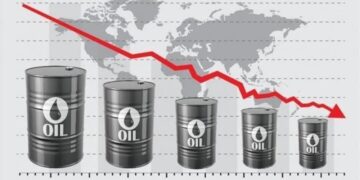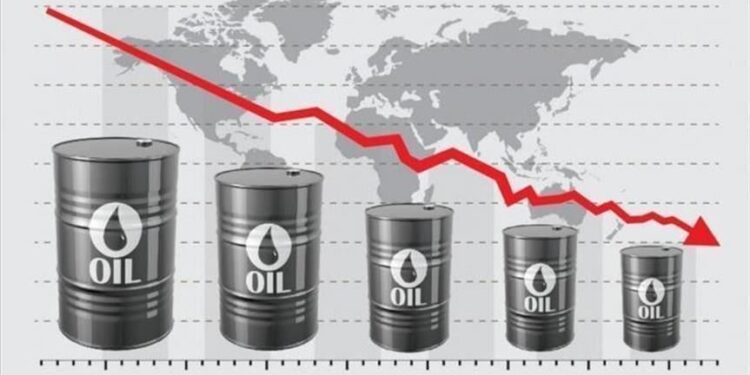By John Ikani
Oil prices plunged more than $1 on Tuesday as concerns mounted regarding a decision by OPEC+ to increase production later this year. The move comes amidst weakening global demand for oil.
Brent crude futures, which had hit a four-month low the previous day, extended their decline by $1.13 or 1.4% to settle at $77.23 a barrel. This follows Monday’s closing price which dipped below $80 for the first time since February. At its lowest point on Tuesday, Brent traded at $76.76, nearing its yearly low of $74.79 set in January.
US West Texas Intermediate (WTI) crude mirrored the downward trend, dropping $1.21 or 1.6% to $73.01 a barrel. WTI had already fallen 3.6% on Monday, settling near a four-month low.
The Organization of the Petroleum Exporting Countries (OPEC+) agreed on Sunday to maintain most production cuts throughout 2025. However, the agreement allows for a gradual unwinding of voluntary cuts by eight members, starting in October.
“This news is disheartening for oil producers but a welcome development for consumers,” commented Tamas Varga, an analyst at oil broker PVM.
The planned increase in production from October onwards has injected anxiety about an oversupply situation. This comes at a time when traders are already apprehensive about high interest rates potentially crippling global economic activity. Weakening economic signals from major economies like the US, China, and Europe suggest that oil demand might not be as robust as initially anticipated for the remainder of the year.
Adding to the supply concerns is the growing output from non-OPEC producers, including the US.
“Given the prevailing sentiment where ‘bad news is bad news,’ any further signs of economic weakness could push oil prices even lower, potentially retesting the lower end of the month-long range around $72 a barrel,” cautioned IG market strategist Yeap Jun Rong.
The US government is scheduled to release inventory and product supply data on Wednesday. Product supply, which serves as an indicator of demand, will reveal gasoline consumption during the Memorial Day weekend, marking the unofficial start of the US driving season.
“The trajectory of oil demand in the coming quarters will likely be a critical factor,” concluded Carsten Fritsch, an analyst at Commerzbank.



































